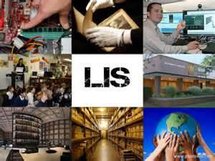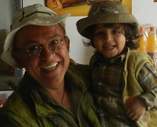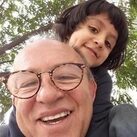- Prices/Payment
- Standard Service US$199.00
- VIP/Rush Service US$299.00
- Statement of Purpose Help
- Dr Robert Edinger, Personal Statement of Purpose Specialist
- Editing/Writing Service
- Mission
- Guarantee/Privacy Policy
- Client Testimony
- Autobiographical
- Disadvantaged Status
- Diversity
- KSA
- Undergrad
- Letters of Recommendation
- Resume /CV
- Interview!
Premium Statement Service by Dr. Robert Edinger
With maximum creativity, research as indicated, priority attention, and as many drafts as needed,
Dr Robert Edinger with Son David
drrobertedinger@gmail.com
1-812-675-4937
Statements of Excellence for Admission to Graduate School in Library & Information Science

Samples of My Work for Admission to MLIS Degree Programs
Why I want to help you get accepted to Graduate School in Library and Information Science
 Librarians, in the truest sense, are the custodians of information. Whether in the public library or in corporate, faculty, or professional facilities, they provide the community with the knowledge, skills, and resources to find more information on virtually any topic. From the future novelist who spends his childhood immersed in fiction to the doctoral candidate preparing a dissertation on medical treatments, the best source for any recorded material, including CD-ROMs, websites, virtual libraries, and remote access to a wide range of resources, is the library. This is why I find working on behalf of applicants in this area to be especially stimulating.
Librarians, in the truest sense, are the custodians of information. Whether in the public library or in corporate, faculty, or professional facilities, they provide the community with the knowledge, skills, and resources to find more information on virtually any topic. From the future novelist who spends his childhood immersed in fiction to the doctoral candidate preparing a dissertation on medical treatments, the best source for any recorded material, including CD-ROMs, websites, virtual libraries, and remote access to a wide range of resources, is the library. This is why I find working on behalf of applicants in this area to be especially stimulating.
I live in Bolivia, by most measures a highly underdeveloped country, somewhat isolated, a difficult challenge for a variety of reasons, I especially admire www.sustainablebolivia.org, an organization dedicated to bringing in workers, students and professionals to help in solidarity from all over the world. The director is my friend as well. Reflecting upon his success since I have met no young person whose accomplishments I admire more, I began to ask him about his past, his upbringing, looking for keys to understanding his high level of success and creativity at such a young age. When he told me that his mother is a librarian, the penny dropped and I understood, he was raised mostly in the library, and the great adventure that the library is today, totally wired to host of real time information and stimulation providers. This is why I especially enjoy working on behalf of the our future librarians, because of the profound contribution that they make to stimulating the creative thinking of young people, our only hope for tomorrow.
I would be honored to help you gain admission to graduate school in Library and Information Science by drafting a most eloquent statement on your behalf.
Search by Degree, Field, or Country of Origin
Most Recently Edited Samples
- Real Estate Finance Master's Degree, Hong Kong, China
- MS, Chinese, Statistics for Technological Advancement
- MS Construction Mgmt, Indian Applicant
- Graphic Design Master's, Art History Background
- PHD Health Sciences Informatics, Chinese
- PHD Economics, Policy Analysis, Chinese
- PHD Earth Sciences, Petroleum Engineering Nigeria
- Master’s Real Estate Development, Latino, Mexico
- Doctor of Special Education, Autism Spectrum
- Masters Real Estate, Los Angeles, Indian
- MS Real Estate, NYC, Harlem, African-American
- Master’s Statistics, Chinese Woman
- Master’s Global Business Journalism, Korean
- Undergraduate, Physics, Chinese
- Diversity Statement, Grad School, Hong Kong
- PHD Statistics, Biomedical Research, Korean
- PHD Epidemiology LOR, Chinese Doctor
- MS Accountancy, Bookkeeping, Vietnamese
- Certificate Program in Global Studies and IR, Mexican-American
- PHD Agricultural Economics, Bangladeshi
Library & Information Science
Even with the Internet making information resources available at anyone's desktop, the role of the librarian is to sift through numerous databases, refine searches, qualify sources and help verify information. The modern science of library and information studies is largely responsible for the development of high-speed, integrated, and accurate storage of bulk information. Many libraries have access to remote databases and maintain their own computerized databases. Librarians also help train users to develop searching skills for the information they seek.
If you're considering a library science degree, you'll need to decide which area you'd be best suited for. Librarians are classified according to the type of library where they work, such as a public library, school library media center; college, university, or special library. Some librarians work with specific groups, such as children, adults, or the disadvantaged. In school library media centers, librarians--often called school media specialists--help teachers develop curricula, acquire materials for classroom instruction, and sometimes team teach.
Librarians also work in information centers or libraries maintained by government agencies, corporations, law firms, advertising agencies, museums, professional associations, medical centers, hospitals, religious organizations, and research laboratories. A corporate librarian could provide the sales department with information on competitors or new developments affecting the field. A medical librarian may provide information about new medical treatments, clinical trials, and standard procedures to health professionals, patients, consumers, and corporations. Government document librarians preserve publications, records, and other documents that make up a historical record of government actions and decision making.
With a library science degree, you can specialize in a single area, such as acquisitions, cataloguing, bibliography, reference, special collections, or administration. Librarians must have knowledge of a wide variety of scholarly and public information sources and must follow trends related to publishing, computers, and the media in order to oversee the selection and organization of library materials. Other personality traits that will help your career are a love for organizing; inquisitive, probing, and thorough by nature; well read with a broad knowledge and interest base; and a desire to never stop learning.
Library Jobs in the Information Age
Librarians with computer and information systems skills can work as automated-systems librarians, who plan and operate computer systems. They might also choose to work as information architect librarians, designing information storage and retrieval systems and developing procedures for collecting, organizing, interpreting, and classifying information.
Employment should grow rapidly in special libraries because of the increase in their use by professionals. More and more, librarians are applying their information management and research skills to arenas outside of libraries--for example, database development, reference tool development, information systems, publishing, Internet coordination, marketing, Web content management and design, and training of database users. Entrepreneurial librarians sometimes start their own consulting practices, acting as freelance librarians or information brokers and providing services to other libraries, businesses, or government agencies. Librarians are valued for their ability to review vast amounts of information and analyze, evaluate, and organize it according to a company's specific needs. Employment of librarians is expected to grow more slowly than average, but job opportunities are expected to be very good because of impending Baby Boomer retirements.
The Humanitarian Side of Library and Information Science
Today’s world is home to 795 million illiterate adults and 72 million children. Hundreds of millions more have no access to books due to a lack of resources. In the few public libraries there are in developing countries, fundamental works in world literature and sciences are often absent. In many countries where there are library, the most recent works date back to a half-century ago.
The role books and libraries play in the success of students coming from the poorest environments is really not surprising. Many women, men and children would see their futures transformed if they could access books. A book does so much more than just convey knowledge and provide an opening to something new.
Books are also an essential instrument in exercising the critical mind and in the education for democracy. Books must increasingly become an essential driver of sustainable development. Placed in a library, they move from hand-to-hand and from generation to generation.
Libraries Without Borders
Libraries Without Borders/Bibliothèques Sans Frontières (LWB) was founded to improve the book and library situation in the world around five years ago. The organization provides relief in humanitarian emergencies and the building blocks for long-term development. By promoting the access to knowledge, they wish to strengthen the aspirations for democracy, justice, and dialogue between cultures across the world."
Patrick Weil founded LWB in 2007 in France. And today, it´s one of the leading NGOs working in knowledge and culture-based development in the world and supporting libraries in developing countries. They believe that access to information and the dissemination of culture are two key under-invested components of human and economic development, and the spread of democratic practices and human rights.
LWB is present in over 20 countries. In France, it supports local initiatives through the creation of libraries to promote education, access to information and culture and the conservation of cultural heritage. Through creating and reinforcing libraries, training librarians, distributing books, supporting local publishing and designing library networks, Libraries Without Borders actively promotes access to knowledge throughout the world.
A Humanitarian Libraries Project
Michel Loots, MD is a Medical Doctor and a humanitarian entrepreneur creating and managing a humanitarian information initiative, the Humanity Libraries Project
(http://www.oneworld.org/globalprojects/humcdromm/8616/nars.htmllows/). They also offer a "basic needs library" with 1.240 publications, that´s free online (http://payson.tulane.edu:8888/projects/humcdromm/8616/nars.htmllows/) and soon on many servers in developed and developing countries.
Humanity Libraries Project is a low cost vaccination campaign against lack of knowledge. The Humanity Libraries Project offers one model for an information resource developed at low cost and made available to all for free or for a very low cost.
A huge "base" of essential knowledge has already been gathered and produced by the UN and World Bank and other publicly funded agencies at very high subsidized cost by the international taxpayers. And yet, this knowledge is not being disseminated and combined as it should be. There are several reasons for this:
- insufficient publicity and dissemination efforts
- tight, defensive copyright restrictions
- practical difficulties, which most NGOs or catalyst humanitarian entrepreneurs come up against when they try to get permission to use the information
- high prices charged by the 20 major UN organizations/the World Bank, which developing countries can´t pay.
In contrast to the problems posed by obtaining documents from UN/World Bank, the Humanity Libraries Project (funded primarily from my own funds and some grants), staffed with a team of 26 collaborators in Romania, has put 200,000 pages of material together from 70 NGOs and development organizations on one CD-ROM.
They already have 15,000 users and this alone we expect to gain 60,000 to 80,000 users in developing countries. They invite organizations to copy our concept as it is feasible.
The Book Bus
The book bus was founded by publisher Tom Maschler with the aim to supply books and make them accessible to children. In 2008, the Book Bus started delivering books to schools in Zambia and working to inspire children to read. Now, they have reading schemes in India, Zambia, Malawi and Ecuador, and more than 100,000 children now have books to read.
Given the rapid spread of automation in libraries, computer skills are needed for many jobs. Knowledge of databases, library automation systems, online library systems, online public access systems, and circulation systems is valuable. The increasing use of automated information systems is enabling librarians to focus on administrative and budgeting responsibilities, grant writing, and specialized research requests, while delegating more technical and user services responsibilities to technicians.
Library Technician Careers
Library technicians can have other titles, such as library technical assistant or media aide. They direct library users to standard references, organize and maintain periodicals, prepare volumes for binding, handle interlibrary loan requests, prepare invoices, perform routine cataloguing and coding of library materials, retrieve information from computer databases, and supervise support staff. An associate of arts in library technology can include both liberal arts and library-related study. Students learn about library and media organization and operation, as well as how to order, process, catalogue, locate, and circulate library materials and work with library automation.

